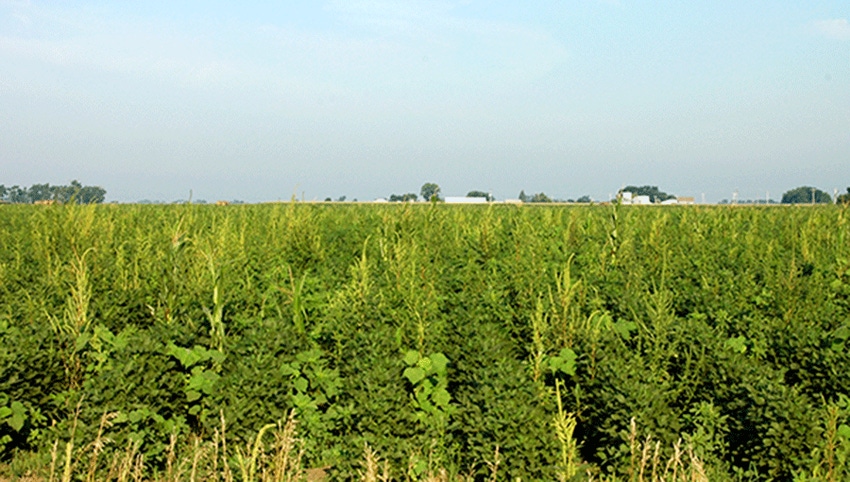
Herbicide-resistant weeds confront more farmers each year, and practices to deal with them are increasingly important, among them, rotation of chemistries and crops, and one that may not often be thought of: cover crops.
The days of herbicides as the only weed management option are gone, says the Mississippi Soybean Promotion Board, which invests soybean farmer checkoff dollars in research and Extension programs to address Mississippi production challenges.
In a three-year research project, Dr. Ryan Edwards, recipient of the organization’s T.S. Bufkin Doctoral Fellowship, found that cover crops in combination with residual herbicides can reduce weed emergence and growth — specifically Palmer amaranth (pigweed).
“Palmer is a complete game-changer weed,” Edwards says. “You either stop it or you have to change your mindset.” While cover crops can represent a sizable investment for farmers, he says, “They are another option for controlling this weed.”
His studies showed that cereal cover crops alone weren’t adequate to manage pigweeds, since they only reduced the field population by 67 percent. But, cover crops paired with a residual herbicide gave better than 89 percent control 28 days after treatment.
He also found that, of all cereal cover crops tested, cutting them to 10 centimeters (about 4 inches) above the soil and leaving the residue resulted in a reduction in weed numbers comparable to other cover crop termination methods. Of all cover crops tested, cereal rye was the most effective in suppressing weeds.
“It didn’t matter which residuals or which cereal grains we used,” Edwards says. “Having that synergism between the two really did knock down the early growth of the amaranth species, and kept the weeds out for three or four weeks, giving the crop enough time to get established.”
The Mississippi Soybean Promotion Board says it believes the success of the state’s soybean industry relies in part on public research programs to address production challenges faced by its soybean growers, and that support of post-graduate soybean scientists is important, especially in the area of production agronomy.
The Bufkin fellowship honors Truett Bufkin, longtime Mississippi Extension county agent, ag economist, and soybean marketing specialist, who died earlier this year at age 91. For many years, he also wrote a marketing column for Delta Farm Press.
About the Author(s)
You May Also Like




